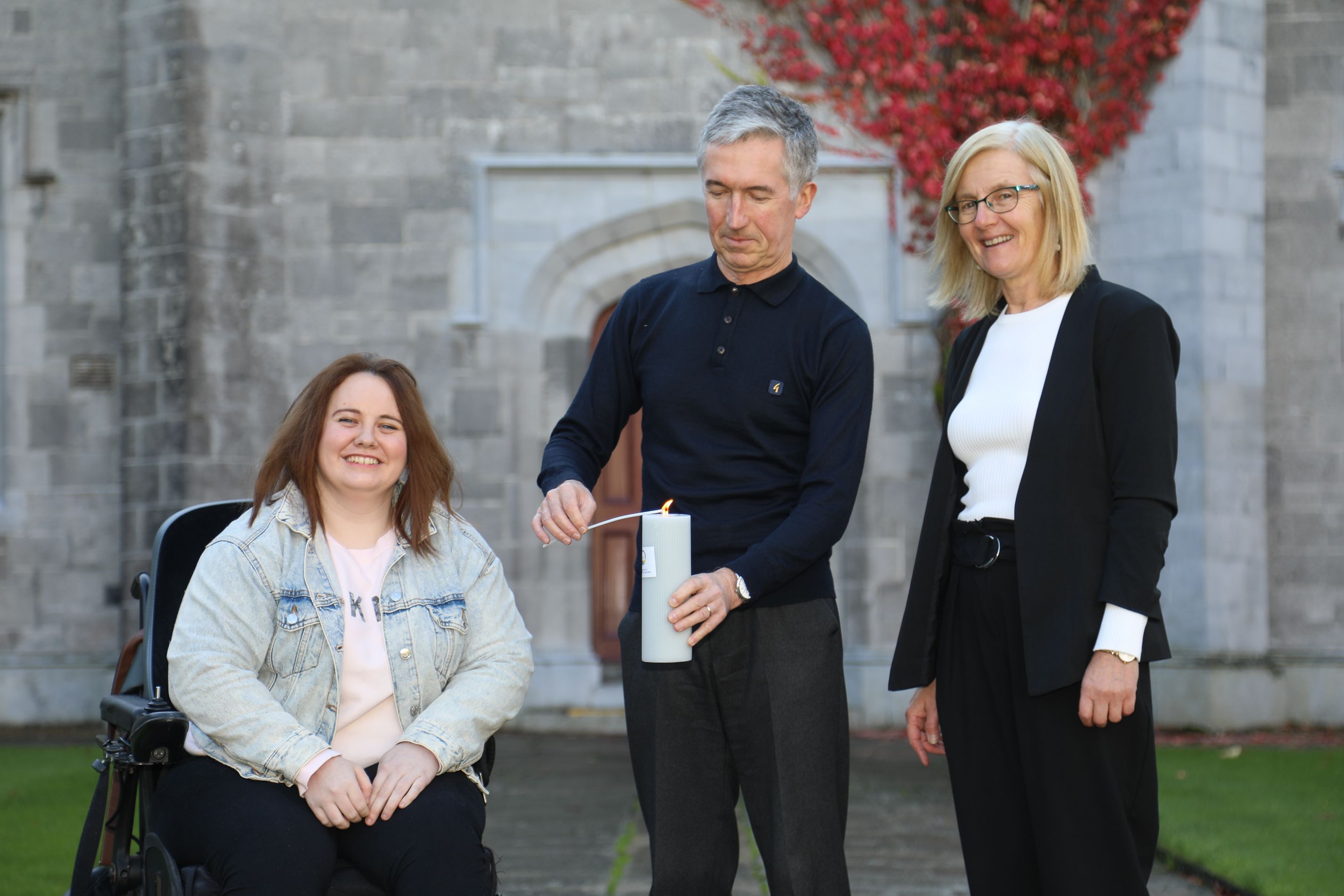National network opens to embed patient involvement in research
PPI Ignite Network launched at NUI Galway - a significant milestone for research, for public and patients and for carers

Minister of State for Disability Anne Rabbitte T.D. has today officially launched the PPI Ignite Network, a new national collaborative initiative putting patients at the centre of decision-making in research.
PPI - Public Patient Involvement - leads to research that is more transparent and relevant, answering questions that matter to the people who are the focus of the research, with a greater impact on policy and society.
Headquartered at NUI Galway, the PPI Ignite Network has programme offices at seven universities across Ireland, a network of local, national and international partners and an expanding group of PPI contributors.
“'Nothing about us, without us’ resonates strongly with me and I particularly welcome the emphasis across the PPI Ignite Network on including historically marginalised groups in co-designing research. Involving people who have not had a voice previously can help shape a different and healthier future for so many people in the coming decades. The PPI Ignite Network really is an investment in future health for all in this country.”
The focus of the PPI Ignite Network is to provide leadership in PPI in research and to provide increased opportunities for the public, patients and carers to be at the centre of research decision-making, working with researchers to decide what issues are important to prioritise and how best to carry out research.

Professor Seán Dinneen, Consultant Endocrinologist with the Saolta Healthcare Group, is the national lead for the PPI Ignite Network. He said: “The PPI Ignite Network will drive excellence and inspire innovation, by embedding a culture of meaningful involvement of the public and patients in research. “We are excited to drive PPI as an integral part of the research culture, to help researchers develop the required skills and knowledge, to broaden the number and diversity of active PPI contributors, and to see genuine and sustained partnerships develop between research teams and community organisations and charities”
The PPI Ignite Network will have a strong focus on education and training, providing supports to researchers and PPI contributors, built around an online hub of case studies, information and resources. A PPI opportunities online portal will go live later this year to help researchers and members of the public who are interested in getting involved to connect with each other.
Dr Anne Cody, Head of Investigator-Led Grants, Research Careers and Enablers at Health Research Board, said: “For over five years we have been championing PPI in research, and our work is clearly illustrating that people’s insights and life experience can inform research in ways researchers operating in isolation can’t. The PPI Ignite Network is bringing together key stakeholders committed to embedding involvement at the core of Irish research, a collaboration capable of facilitating significant positive change.”
What is PPI?
PPI is Public Patient Involvement. It is the concept of involving people, who are not researchers, in the research and seeking their input to shape and guide it. It is about moving their role from one of participant to one of partnership.
The aim of PPI is to improve research quality, to ensure it is relevant, useable and in the best interests of the patient and general population.
What is the PPI Ignite Network and why has it been set up?
The PPI Ignite Network is a collaboration involving seven Irish universities and dozens of partner organisations, including patient groups working together at a national and local level. The aim of the Network is to ensure that people and patients are involved at every stage of health and social care research in Ireland, right from the start.
What organisations and institutions are involved?
The PPI Ignite Network national office is in NUI Galway. The other university partners are Trinity College Dublin, UCC, DCU, UCD, UL and RCSI. It is funded by the Health Research Board and the Irish Research Council. The national partners are
· Tusla Child and Family Agency,
· HSE Research and Development,
· Health Research Charities Ireland (HRCI),
· Irish Platform for Patient Organisations, Science and Industry (IPPOSI),
· Structured Population and Health Services Research Education (the SPHeRE programme)
· the HRB Trials Methodology Research Network (HRB TMRN),
· Campus Engage,
· Maynooth University,
· Queen’s University Belfast,
· the International Collaboration for Participatory Health Research (ICPHR).
What is the action plan?
The PPI Ignite Network is funded for five years. Its key objective is to promote research undertaken ‘with’ or ‘by’ members of the public rather than ‘to’, ‘about’ or ‘for’ them.
It will develop and deliver PPI education and training to undergraduate and postgraduate students, researchers, the public, patients and community organisations, policymakers and research funders.
It will explore ways of making it easier to involve patients and the public in research, how to identify what is good PPI and how to measure its impact.
It will ensure voices of marginalised and disadvantaged groups are heard.
It will establish an online PPI hub and events to share examples of good PPI, resources, knowledge and experience so researchers, students, the public, patients and all those involved or who are impacted by research can learn from each other.
In most languages, writing is a complement to speech or spoken language. Writing is not a language but a form of technology. Within a language system, writing relies on many of the same structures as speech, such as vocabulary, grammar and semantics, with the added dependency of a system of signs or symbols, usually in the form of a formal alphabet. The result of writing is generally called text, and the recipient of text is called a reader. Motivations for writing include publication, storytelling, correspondence and diary. Writing has been instrumental in keeping history, dissemination of knowledge through the media and the formation of legal systems.
